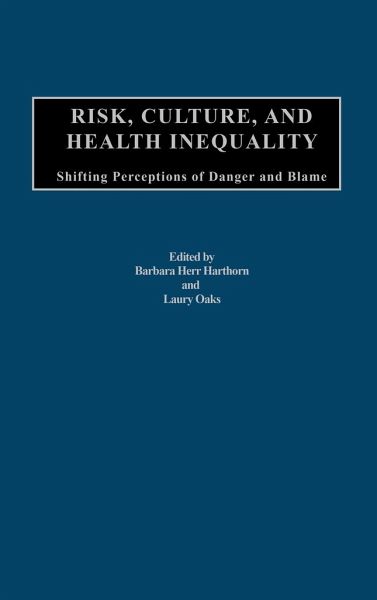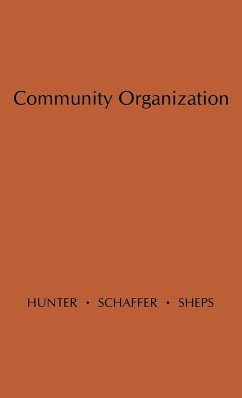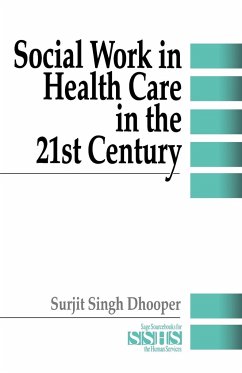
Risk, Culture, and Health Inequality
Shifting Perceptions of Danger and Blame
Herausgeber: Harthorn, Barbara; Oaks, Laury

PAYBACK Punkte
31 °P sammeln!
Examines the diverse uses and abuses of risk by social actors across a wide range of cultural, ethnic, and geographical locales. The introductory chapter by the two co-editors analyzes and contextualizes current scholarly debates on the social, cultural, and political construction of risk. It is followed by an overview on the anthropology of harm reduction that outlines an innovative framework for culturally informed risk analysis. The remaining nine chapters are organized into three sections, The Cultivation of Fear, Perceptions of Health, Safety, and Hazard: Risk Makers and Risk Takers, and ...
Examines the diverse uses and abuses of risk by social actors across a wide range of cultural, ethnic, and geographical locales. The introductory chapter by the two co-editors analyzes and contextualizes current scholarly debates on the social, cultural, and political construction of risk. It is followed by an overview on the anthropology of harm reduction that outlines an innovative framework for culturally informed risk analysis. The remaining nine chapters are organized into three sections, The Cultivation of Fear, Perceptions of Health, Safety, and Hazard: Risk Makers and Risk Takers, and Regulating Risk and the Public's Health. The book aims to address a set of questions of theoretical and practical importance to anthropologists, sociologists, public health scholars and professionals, and public policy advocates, among others. These questions include: How do individuals conceptualize and respond to risk? Can risk be a tool of empowerment for individuals and communities who define themselves as at-risk? How has risk figured recently in the production of health inequality? Has the social contract to provide care in its broadest sense expanded or contracted around issues of risk? Are risk and the imperative to adhere to risk warnings used by experts as a means of social control? The volume's contributors, medical anthropologists and sociologists, provide rich, grounded ethnographic case material on the processes at work in everyday social life around the globe, as individuals and groups struggle to make saense of the health risks and inequities in their lives and communities. Authors address an array of urgent health concerns, ranging from food safety to environment, new technologies to infectious disease, in such contrasting locales as the US, Europe, South and Southeast Asia, and North Africa, and across diverse ethnicities and social classes.













